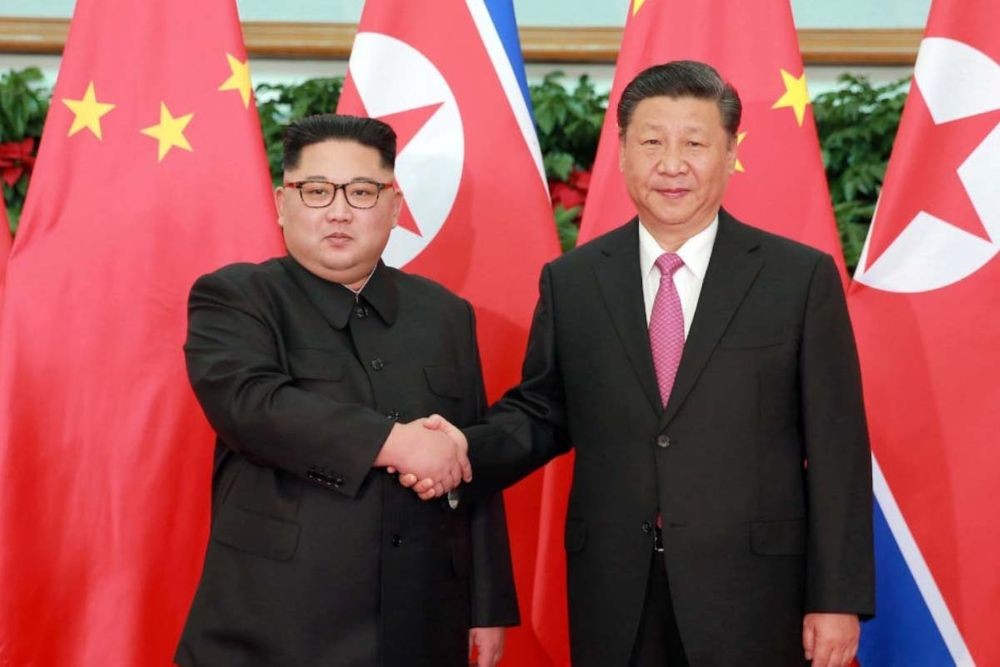South Korea-China Trade Surplus Exceeds $1 Trillion, North Korea Remains in Deficit
North Korea’s Trade Deficit Increases Annually
Dependence on Chinese Trade Surpasses 95%
South Korea Records $1 Trillion Trade Surplus

North Korea is recording a substantial trade deficit with China each year.
VOA (Voice of America) has analyzed, based on the North-China trade balance data from the Chinese Customs General Administration, Korea Trade Association, and Korea Trade-Investment Promotion Agency (KOTRA), the cumulative deficit between North Korea and China over 30 years from 1994 until the last year (2023) was calculated to be around $222.721 billion.
The trade balance is a concept that records a ‘surplus’ when export revenue exceeds import revenue and a deficit when import revenue exceeds export revenue. According to the data, North Korea has not recorded a single surplus in its dealings with China over the past 30 years, leaving a massive cumulative deficit of over $200 billion.
Specifically, VOA reported that North Korea has maintained a deficit ranging from $200 million to $700 million annually since recording a deficit of $225.3 million in 1994. In 2008, North Korea recorded a deficit exceeding $1 billion for the first time.

Notably, the size of the deficit escalated from 2017 onward.
Starting with a record of $1.677 billion in 2017, it gradually increased to $2 billion the year after and $2.3 billion in 2019. This is analyzed due to the enforcement of international sanctions on primary North Korean export goods, such as an embargo on coal and clothing during this period.
However, North Korea’s deficit diminished again to less than $1 billion from 2020 to 2022, when trade between the two countries significantly decreased due to the COVID-19 pandemic. However, with the recovery of the trade industry from last year (2023), the deficit has increased dramatically.
In 2023, North Korea recorded a deficit of $1.738 billion, the third-largest in history.

In contrast to North Korea, which has been in deficit for 30 years since 1994, South Korea has recorded a surplus in trade with China every year.
According to data from the Chinese Customs General Administration, South Korea continued to earn a surplus in trade with China every year from the mid-1990s to 2023. As a result, South Korea’s cumulative trade balance surplus with China exceeds $1 trillion.
However, according to data analyzed by the Korea Customs Service, South Korea recorded a deficit in trade with China for the first time last year. This differs from China’s Customs General Administration’s analysis, which showed a surplus of $12 billion in 202. VOA commented that the difference in analysis between the two countries could vary depending on how some export and import items and trade in each region are recorded.

William Brown, a North Korean economic expert and professor at the University of Maryland, explained in an interview with VOA on the 9th that the scale of South Korea-China trade is enormous compared to North Korea-China trade, regardless of whether it is a deficit or surplus.
Professor Brown added, “The amount of trade South Korea performs with China in a week is more than North Korea does in a year.” He argued that “when defining export revenues as a means of payment for imports, South Korea has no problem handling deficits because there is a huge export surplus achieved in other various countries, including the United States.”
In contrast, He pointed out, “Since North Korea hardly trades with any other countries, it is fair to interpret the deficit with China as almost a global deficit.” In fact, North Korea’s trading dependence on China exceeds 95% every year.
On the other hand, the amount of trade South Korea executes with China is about 20% of the total amount. Last year, South Korea’s total trade with China was $310 billion, 140 times the North Korea-China trade, marking $2.29 billion in the same period.
Professor Brown pointed out that North Korea cannot operate the country through imports and exports like other normal countries, stating, “North Korea claims to accomplish complete subjectivity, but in reality, it is not because of the high dependence.”
Meanwhile, some argue that North Korea’s economy might have grown but cannot return to previous growth rates. Professor Gray said, “Looking at North Korea’s economic situation now, it’s better than last year.” but also predicted, “If we compare this situation to 2017, North Korea has not recovered to that extent, and there is little chance of returning due to the significant sanctions-related issues.”















Most Commented